Filter by
SubjectRequired
LanguageRequired
The language used throughout the course, in both instruction and assessments.
Learning ProductRequired
LevelRequired
DurationRequired
SkillsRequired
SubtitlesRequired
EducatorRequired
Explore the Bayesian Statistics Course Catalog
 Status: Free Trial
Status: Free TrialUniversity of California, Santa Cruz
Skills you'll gain: Time Series Analysis and Forecasting, Bayesian Statistics, R Programming, Forecasting, Statistical Inference, Statistical Modeling, Technical Communication, Data Presentation, Statistics, Probability, Statistical Analysis, Statistical Software, Advanced Analytics, R (Software), Data Analysis, Mathematical Modeling, Microsoft Excel, Markov Model, Statistical Methods, Data Science
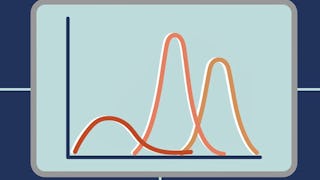 Status: Free Trial
Status: Free TrialUniversity of California, Santa Cruz
Skills you'll gain: Bayesian Statistics, Statistical Inference, Statistics, Data Analysis, Probability, Statistical Modeling, Statistical Analysis, Microsoft Excel, Probability Distribution, R Programming, Regression Analysis
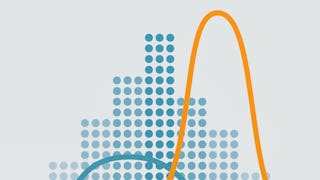
Duke University
Skills you'll gain: Bayesian Statistics, Statistical Hypothesis Testing, Statistical Modeling, Statistical Methods, Statistical Inference, Regression Analysis, Data Analysis, R Programming, Probability, Predictive Modeling, Probability Distribution
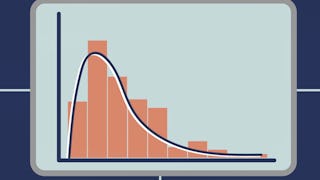 Status: Free Trial
Status: Free TrialUniversity of California, Santa Cruz
Skills you'll gain: Bayesian Statistics, Statistical Modeling, Markov Model, Statistical Analysis, Regression Analysis, R Programming, Simulations, Statistical Inference, Data Analysis, Probability, Probability Distribution
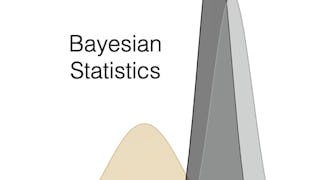 Status: New
Status: NewUniversity of Colorado Boulder
Skills you'll gain: Bayesian Statistics, Statistical Inference, Statistical Modeling, Predictive Analytics, Statistical Methods, Data Ethics, Data Science, Probability, Regression Analysis, Analytical Skills, Probability Distribution
 Status: Preview
Status: PreviewStanford University
Skills you'll gain: Descriptive Statistics, Statistics, Statistical Methods, Sampling (Statistics), Statistical Analysis, Data Analysis, Statistical Modeling, Statistical Hypothesis Testing, Regression Analysis, Statistical Inference, Probability, Exploratory Data Analysis, Quantitative Research, Probability Distribution
What brings you to Coursera today?
 Status: NewStatus: Free Trial
Status: NewStatus: Free TrialIllinois Tech
Skills you'll gain: Bayesian Statistics, Machine Learning Algorithms, Statistical Analysis, Data Visualization, Statistical Inference, Data Analysis, Regression Analysis, Data Cleansing, Analytics, Statistical Modeling, Machine Learning, Statistical Software, R Programming, Data Science, Statistical Programming, Statistical Methods, R (Software), Data Validation, Data Manipulation, Exploratory Data Analysis
 Status: Free Trial
Status: Free TrialUniversity of Michigan
Skills you'll gain: Statistical Hypothesis Testing, Sampling (Statistics), Statistical Modeling, Statistical Methods, Statistical Inference, Bayesian Statistics, Data Visualization, Statistics, Matplotlib, Statistical Visualization, Statistical Software, Probability & Statistics, Statistical Analysis, Jupyter, Statistical Programming, Regression Analysis, Data Visualization Software, Predictive Modeling, Data Analysis, Python Programming
 Status: Free Trial
Status: Free TrialIllinois Tech
Skills you'll gain: Bayesian Statistics, Data Analysis, Statistical Modeling, Statistical Software, Statistical Programming, Statistical Methods, Regression Analysis, Statistical Inference, R Programming, Numerical Analysis, Sampling (Statistics), Markov Model, Probability, Simulations, Probability Distribution
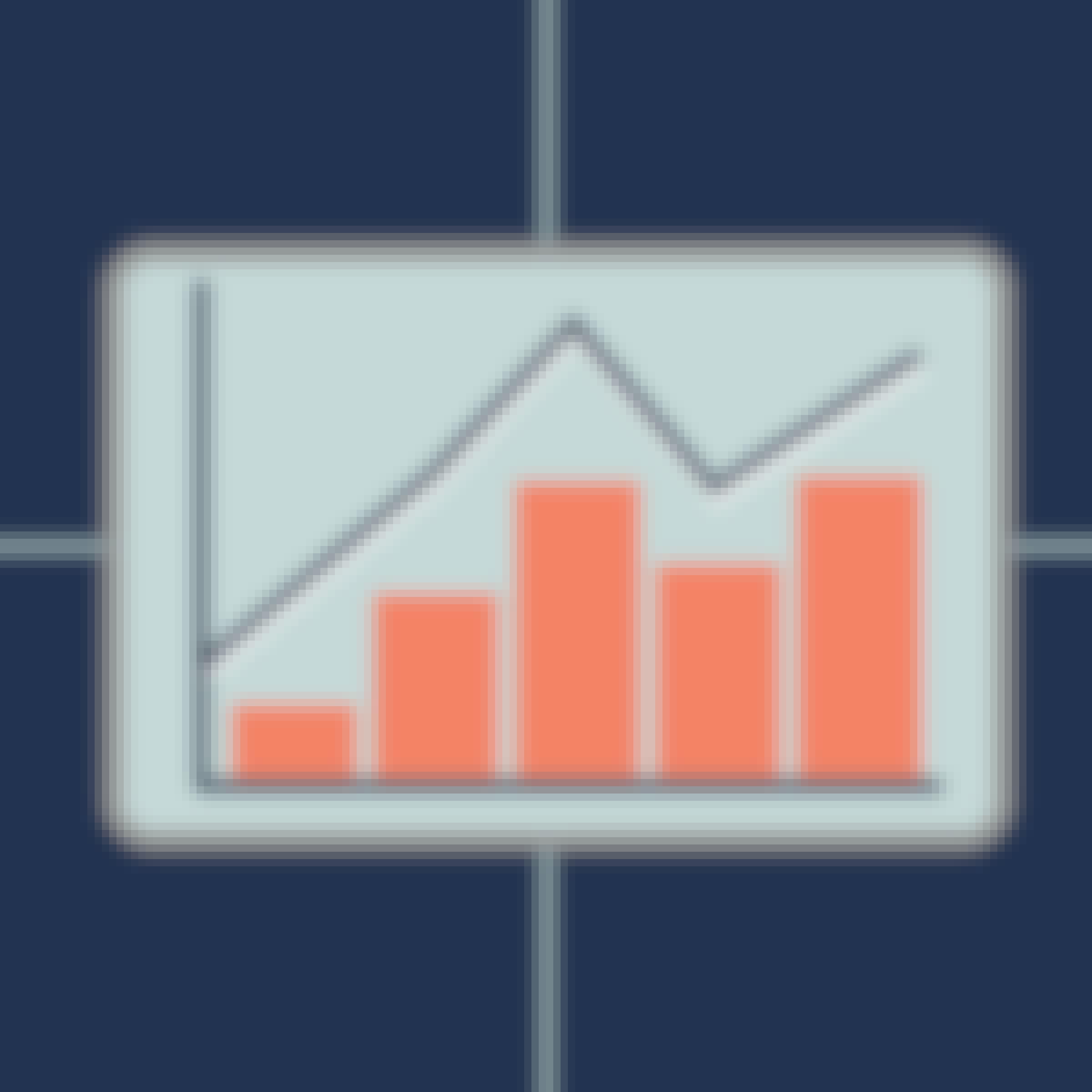 Status: Free Trial
Status: Free TrialUniversity of California, Santa Cruz
Skills you'll gain: Time Series Analysis and Forecasting, Forecasting, R Programming, Bayesian Statistics, Advanced Analytics, Statistical Modeling, R (Software), Statistical Analysis, Statistical Inference, Data Analysis, Mathematical Modeling, Probability Distribution
 Status: Free Trial
Status: Free TrialJohns Hopkins University
Skills you'll gain: Statistical Inference, Statistical Hypothesis Testing, Probability & Statistics, Probability, Statistics, Bayesian Statistics, Statistical Methods, Statistical Modeling, Statistical Analysis, Probability Distribution, Sampling (Statistics), Sample Size Determination, Data Analysis
 Status: Free Trial
Status: Free TrialJohns Hopkins University
Skills you'll gain: Statistical Hypothesis Testing, Sampling (Statistics), Regression Analysis, Bayesian Statistics, Statistical Analysis, Probability & Statistics, Statistical Inference, Statistical Methods, Statistical Modeling, Linear Algebra, Probability, R Programming, Biostatistics, Data Science, Statistics, Probability Distribution, Mathematical Modeling, Data Analysis, Applied Mathematics, Predictive Modeling
Bayesian Statistics learners also search
In summary, here are 10 of our most popular bayesian statistics courses
- Bayesian Statistics: University of California, Santa Cruz
- Bayesian Statistics: From Concept to Data Analysis: University of California, Santa Cruz
- Bayesian Statistics: Duke University
- Bayesian Statistics: Techniques and Models: University of California, Santa Cruz
- Introduction to Bayesian Statistics for Data Science: University of Colorado Boulder
- Introduction to Statistics: Stanford University
- Advanced Statistical Techniques for Data Science: Illinois Tech
- Statistics with Python: University of Michigan
- Bayesian Computational Statistics: Illinois Tech
- Bayesian Statistics: Time Series Analysis: University of California, Santa Cruz










